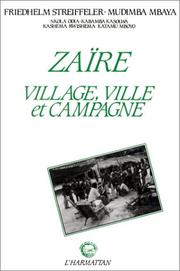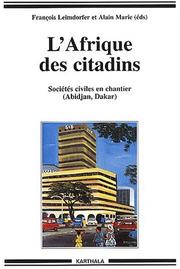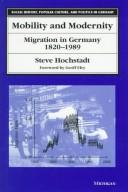| Listing 1 - 10 of 23 | << page >> |
Sort by
|
Book
ISBN: 0080224156 0080224199 9780080224190 Year: 1978 Volume: 22 Publisher: Oxford Pergamon Press
Abstract | Keywords | Export | Availability | Bookmark
 Loading...
Loading...Choose an application
- Reference Manager
- EndNote
- RefWorks (Direct export to RefWorks)
Migration. Refugees --- Demography --- Brain drain --- Return migration --- Exode des cerveaux --- Brain drain - Developing countries --- Return migration - Developing countries

ISBN: 2858027811 Year: 1986 Publisher: Paris Harmattan
Abstract | Keywords | Export | Availability | Bookmark
 Loading...
Loading...Choose an application
- Reference Manager
- EndNote
- RefWorks (Direct export to RefWorks)
Migration. Refugees --- Sociology of environment --- Congo --- Migration, Internal --- Rural-urban migration --- Migration intérieure --- Exode rural --- Kisangani (Congo) --- Tshopo (Congo) --- Population. --- Rural conditions. --- Population --- Conditions rurales --- Migration intérieure

ISBN: 904290805X 9024262135 9024261945 9789042920064 9789042908055 9042911263 9789024262137 9789042911260 9789024261949 Year: 2000 Volume: *8 Publisher: Leuven Peeters
Abstract | Keywords | Export | Availability | Bookmark
 Loading...
Loading...Choose an application
- Reference Manager
- EndNote
- RefWorks (Direct export to RefWorks)
Book
ISBN: 9781494319571 Year: 2014 Publisher: Fribourg ARENA
Abstract | Keywords | Export | Availability | Bookmark
 Loading...
Loading...Choose an application
- Reference Manager
- EndNote
- RefWorks (Direct export to RefWorks)
Environmental planning --- ethics [concept] --- rural planning --- rural development --- urban planning --- Urban-rural migration --- Sociology, Rural --- Country life --- Rural-urban relations --- Exode urbain --- Sociologie rurale --- Vie rurale --- Relations villes-campagnes --- ethics [philosophical concept]

ISBN: 2865372634 9782865372638 Year: 1990 Volume: vol *2 Publisher: Paris Karthala
Abstract | Keywords | Export | Availability | Bookmark
 Loading...
Loading...Choose an application
- Reference Manager
- EndNote
- RefWorks (Direct export to RefWorks)
Islam --- National movements --- Sociology of culture --- Algeria --- History --- Islamic fundamentalism --- Islam - Algeria - History - 20th century --- mosquées --- Algérie --- urbanisation --- démographie --- exode rural --- culture --- politique --- idéologie --- crise du logement --- conditions de vie --- l'Islam --- Front islamique du salut --- FIS

ISBN: 2845863365 9782845863361 Year: 2003 Publisher: Paris Karthala
Abstract | Keywords | Export | Availability | Bookmark
 Loading...
Loading...Choose an application
- Reference Manager
- EndNote
- RefWorks (Direct export to RefWorks)
Sociology of environment --- Community organization --- Political sociology --- Dakar --- Abidjan --- Community development, Urban --- Rural-urban migration --- Développement communautaire urbain --- Exode rural --- Individualism --- Individu et société --- Société civile --- Développement communautaire urbain --- Individualism - Senegal - Dakar.

ISBN: 0472109448 Year: 1999 Volume: *13 Publisher: Ann Arbor, Mich. The University of Michigan Press
Abstract | Keywords | Export | Availability | Bookmark
 Loading...
Loading...Choose an application
- Reference Manager
- EndNote
- RefWorks (Direct export to RefWorks)
'Mobility and Modernity' uses voluminous German data on migrations over the past two centuries to demonstrate why conventional assumptions about the relationship between mobility and modernity must be revised. Thus far the changing total volume of migration has not been traced over a long period for any country. Unique migration registration statistics, both detailed and broadly geographical in coverage, allow the precise plotting of migration rates in Germany since 1820. Steve Hochstadt combines careful quantitative methods, easily understood numerical data, and social analysis based upon broad reading in German social history to show that current beliefs about the direction and timing of changes in German mobility, which have been based on late nineteenth-century anxieties about urbanization and industrialization, do not match the data. Migration rates in Germany rose continuously throughout the nineteenth century, and have fallen during the twentieth century. Mobility, Hochstadt argues, was not an unprecedented accompaniment to industrialization, but a traditional rural response to specific economic changes. Hochstadt's more precise analysis of urban in- and outmigration shows the mechanism of urbanization to have been the migration of families rather than the much greater, but also more circular, migration of single men and women. Hochstadt demonstrates the importance of examining historical behavior, powerfully justifying the methods of historical demography as a path to social understanding. The data and specific conclusions are German, but the methods and reinterpretaion of migration history have much wider application, both to other modern European nations and to currently developing countries. Those who study the modern social history of Europe, the mechanisms that formed urban working classes, and the methods of historical demography will be interested in Hochstadt's work. Steven Hochstadt was awarded the Social Science History Association's Allan Sharl
Migration, Internal --- Residential mobility --- Rural-urban migration --- Migration intérieure --- Mobilité résidentielle --- Exode rural --- History --- Histoire --- History. --- History of Germany and Austria --- anno 1800-1999 --- Migration intérieure --- Mobilité résidentielle --- Germany --- Migration [Internal ]
Book
ISBN: 0865318328 9780865318328 Year: 1984 Publisher: Boulder, Colo. Westview Press
Abstract | Keywords | Export | Availability | Bookmark
 Loading...
Loading...Choose an application
- Reference Manager
- EndNote
- RefWorks (Direct export to RefWorks)
Social geography --- Sri Lanka --- Mali --- South Korea --- Rural-urban migration --- Urban-rural migration --- Exode rural --- Exode urbain --- Developing countries --- Pays en développement --- Rural conditions. --- Conditions rurales --- Rural conditions --- Cities and towns, Movement from --- City-country migration --- Counterurbanization --- Migration, Urban-rural --- Urban exodus --- Migration, Internal --- Rural-urban relations --- Emerging nations --- Fourth World --- Global South --- LDC's --- Least developed countries --- Less developed countries --- Newly industrialized countries --- Newly industrializing countries --- NICs (Newly industrialized countries) --- Third World --- Underdeveloped areas --- Underdeveloped countries --- Pays en développement --- Rural-urban migration - Developing countries --- Urban-rural migration - Developing countries --- Developing countries - Rural conditions
Book
ISBN: 9781851966462 1851966463 Year: 2009 Volume: 1 Publisher: London Pickering & Chatto
Abstract | Keywords | Export | Availability | Bookmark
 Loading...
Loading...Choose an application
- Reference Manager
- EndNote
- RefWorks (Direct export to RefWorks)
Migration. Refugees --- History of Antwerp --- migration [function] --- anno 1700-1799 --- anno 1800-1899 --- Rural-urban migration --- Exode rural --- History --- Histoire --- Antwerpen (stad) --- Antwerp (Belgium) --- Anvers (Belgique) --- Emigration and immigration --- Social aspects --- Social conditions --- Economic conditions --- Emigration et immigration --- Aspect social --- Conditions sociales --- Conditions économiques --- Conditions économiques --- Migratie. Vluchtelingen --- Geschiedenis van Antwerpen --- migratie --- Social aspects. --- Economic conditions.
Book
ISBN: 2130357806 9782130357803 Year: 1979 Volume: 1747 Publisher: Paris PUF
Abstract | Keywords | Export | Availability | Bookmark
 Loading...
Loading...Choose an application
- Reference Manager
- EndNote
- RefWorks (Direct export to RefWorks)
Sociology of environment --- Rural-urban migration --- Exode rural --- Pays en développement --- Developing countries --- rural urban migration --- France --- Europe --- Amérique du Nord --- North America --- #ABIB:altk --- 711 --- Désherbage --- Cities and towns, Movement to --- Country-city migration --- Migration, Rural-urban --- Rural exodus --- Migration, Internal --- Rural-urban relations --- Urbanization --- Deselectie --- Rural-urban migration. --- Landelijke migratie --- Frankrijk --- Frankrijk.
| Listing 1 - 10 of 23 | << page >> |
Sort by
|

 Search
Search Feedback
Feedback About UniCat
About UniCat  Help
Help News
News